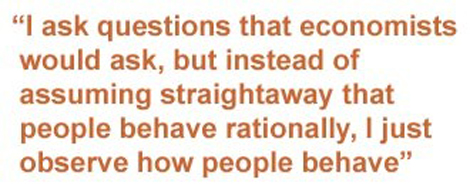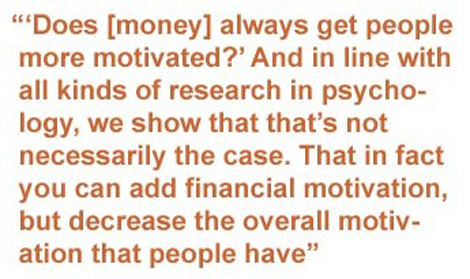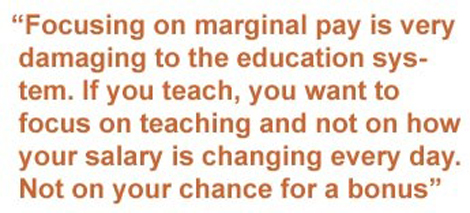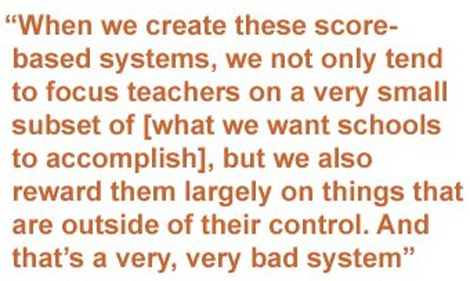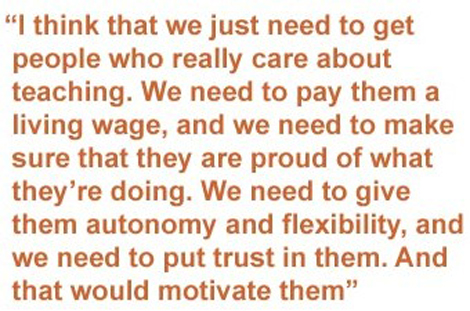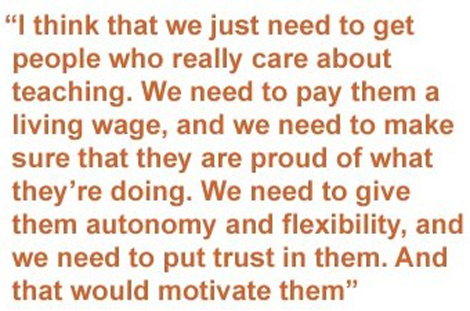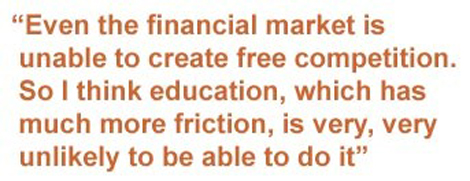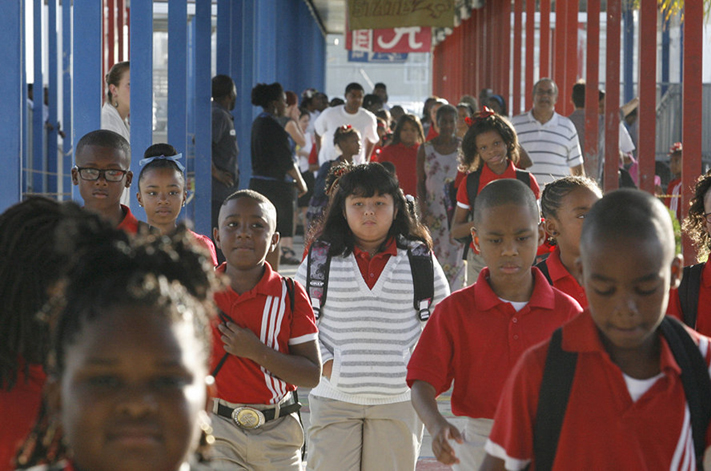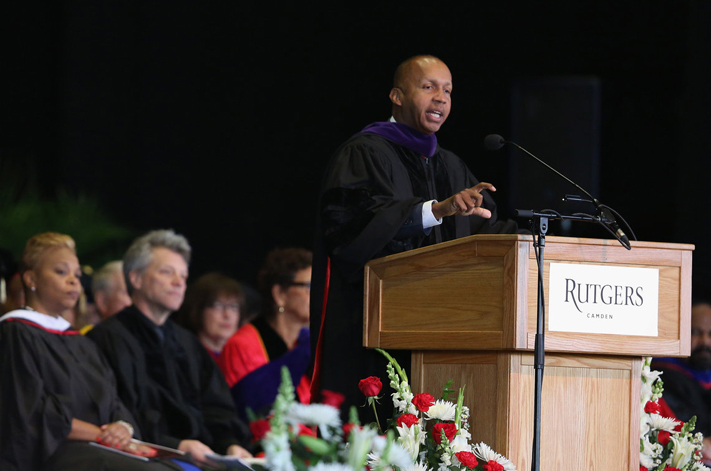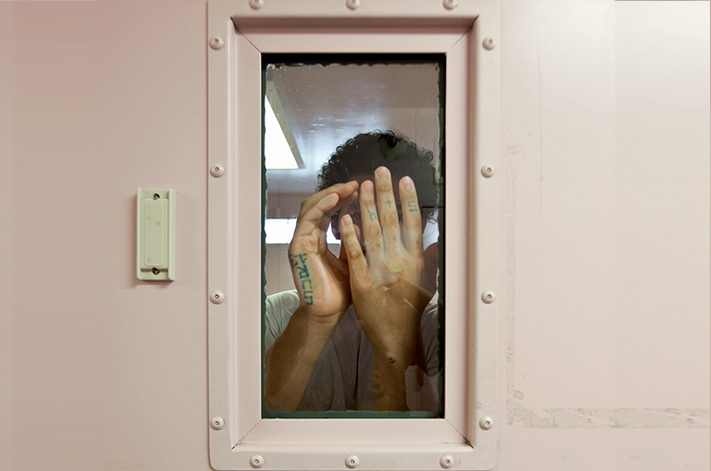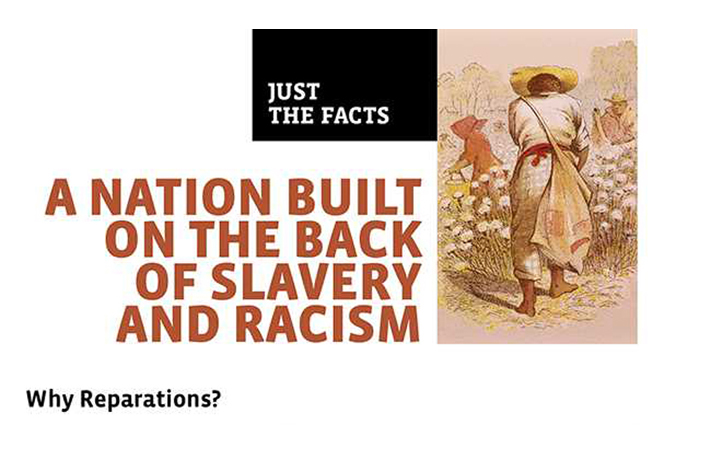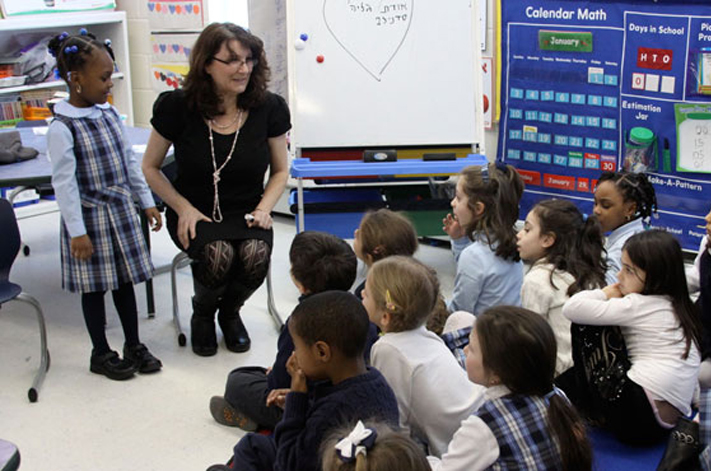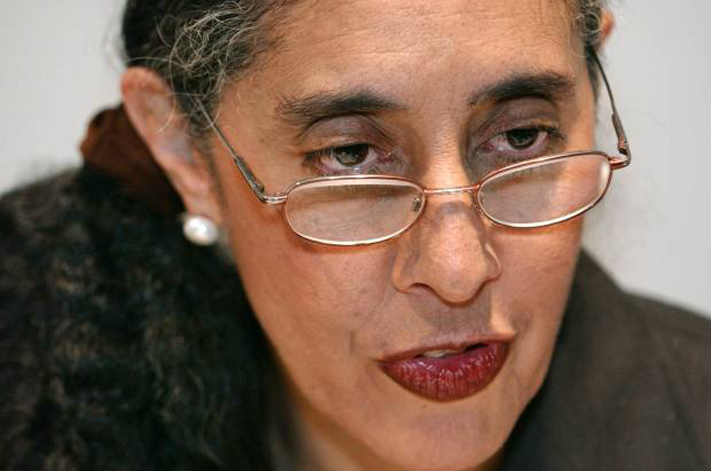Project Description
There is far more to education than teacher compensation and “school choice reforms.” To do well by and for our children we must consider motivation! How do we best serve our children and The Seventh Generation? We invite you to participate in another conversation, Dan Ariely: Education and Irrationality. Let us turn a lens to the education system. Would a clearer understanding of human behaviour improve our approach to education?
Predictably Irrational: Author Dan Ariely on Education Reforms Involving Teacher Compensation and School Choice
“When we make decisions we think we’re in control, making rational choices. But are we?”
Of course, irrationality is not always bad. His follow-up, The Upside of Irrationality, offers another look at the irrational decisions that influence our lives, as well as some of the positive effects that such irrationality can have.
Ariely recently spoke with us about his work and its implications for education reforms involving teacher compensation and school choice.
Public School Insights: You are a behavioral economist. What does that mean?
Ariely: My Ph.D.s are actually not in economics. I have a Ph.D. in cognitive psychology, and I have a Ph.D. in business administration. But what I do lies between psychology and economics.
Ariely: Yes. In Predictably Irrational, I talk about how people think, mostly about financial decisions. The things that we buy. One chapter asks the question, “How do we decide how much something is worth?” Economic theory has a very simple assumption about this. But I ask the question, “How do we really do it?”
Or I ask the question, “What happens when the price of something drops to zero?” People get overly excited about it, usually. But is it just because it’s cheaper or is there something special about zero?
In a chapter more relevant to the school system, I ask, “What happens when we add money to an incentive system? Does it always get people more motivated?” And in line with all kinds of research in psychology, we show that that’s not necessarily the case. That in fact you can add financial motivation, but decrease the overall motivation that people have.
That’s basically Predictably Irrational. Mostly, people making financial decisions.
The Upside of Irrationality, the second book, has two
Then we asked, “What do people look for in work? Not just money. What else is there?” For example, we show the meaning that people can attribute to their own work. The connection actually has dramatic implications for how much they work.
So [the first half looks to determine], if you wrote an equation to try to predict people’s labor output as a function of all kinds of “things,” what would those “things” be? And we find that it’s not just money. There are all kinds of other kind of players, if you will, that influence how much effort people put into things.
The second part of The Upside of Irrationality is about the personal life. It’s about the question, how do we find happiness? And how do we adapt to good and bad things that happen to us? And it’s a little bit about emotion. Stuff like that. So that’s basically the two books.
Public School Insights: There is great debate right now over teacher compensation. Paying teachers more, in general. Paying teachers more if they raise student standardized test scores, or teach in a hard-to-staff school or teach a hard-to-staff subject. Based on your research, what are your thoughts on these reforms?
Ariely: First of all, I think people should make a living wage. There’s no question that if you have a field that pays very poorly, it doesn’t attract the same pool of people [as one that pays well]. That’s the starting point and where I think economics is correct. If you tell people that you can live reasonably well if you work in this field, people would be interested in that field. That’s clear, in terms of attracting people.
In particular, I think that focusing on marginal pay is very damaging to the education system. If you teach, you want to focus on teaching and not on how your salary is changing every day. Not on your chance for a bonus. That can be very damaging.
It not only creates strange incentives for the individual, it can also create bad incentives socially. Imagine that you and I work in the same school and we start getting paid differentially. Then there’s some envy developing and so on. That’s very bad.
I’ll tell you one more thing. There’s literature on something called multiple-cue probability learning. The whole literature is about one simple idea: When we work in an environment that has a lot of random elements—elements that are not under our control—it’s very hard for us to understand what’s right and wrong, and how to behave.
But what if I added a random component that is outside of your control? What if, after you finished kicking it, somebody comes and moves the ball either 20 feet right or 20 feet left? How good would you be under those conditions?
It turns out you would be terrible. Because human beings can learn very well in deterministic systems, but in a probabilistic system—what we call a stochastic system, with some random error—people very quickly become very bad at it.
So now imagine a schoolteacher. A schoolteacher is doing what
How much random error is in the feedback of the teacher? How much is somebody moving the ball right and left? A ton. Teachers actually control a very small part of the variance. Parents control some of it. Neighborhoods control some of it. What people decide to put on the test controls some of it. And the weather, and whether a kid is sick, and lots of other things determine the final score.
So when we create these score-based systems, we not only tend to focus teachers on a very small subset of [what we want schools to accomplish], but we also reward them largely on things that are outside of their control. And that’s a very, very bad system.
Public School Insights: Are there any incentive structures you think could improve teacher performance?
Ariely: So look. The reality is that there has not been a single time in the history of the world when people have been able to contract exact performance. If I create a contract that rewards you for the number of words you write, you will write more words.
When I was at MIT, we had to teach 112 units a year. There was some complex equation for what “units” were. And guess what? I taught the least amount possible for 112 units a year. Right? I actually like teaching, but they created a system which basically implicitly told me that my goal at the university was to teach as little as possible to get the 112 units I needed. So for many years I would teach only one class a year, because I’m really good at optimizing a system.
Every time we create a specific contract, we will get people to optimize a particular behavior. And the truth is, we don’t know what contracts to create. Think about CEOs. If we create contracts that basically tell them that their main objective is to increase the share value of the stock for the next quarter, they’ll do that. And destroy the company while doing that. If we tell teachers that all we care about is the score of the kids on this particular test, they’ll raise it.
And it’s not just because of money, by the way. We have this idea, “You are what you measure.” If you start measuring something, you make it more salient. You get people to start paying more attention to it and trying to optimize it.
Now, education is not something that we have an immediate measure for. The truth is that what we want are people who 20 years later still want to study. If you said that education is just about being able to recognize all the letters, reading something when you’re forced to or solving simple math problems so you can balance your checkbook…If we had something that simple, I think we could incentivize teachers to optimize that.
But if you said, “I want to instill in kids a love of learning. I want kids to be creative and thoughtful, and I want them to be critical. I want them to develop skills that will allow them, later, to build on those skills so they can become good scientists.” What is that? We can’t measure that.
And because it’s so long-term…You know, the right incentive structure would be to give teachers 1 percent of their [students]’ salary for life. But that again would not be ideal. It would be long-term, but now they would just try to make kids into lawyers and bankers.
[/fusion_builder_row_inner]Very much like professors, right? Professors are kind of interesting. We have tenure. Nobody can fire us. We get paid, usually, better than
But we can decide what to teach. It’s up to us. And there’s no performance-based pay. Nobody is testing our kids. Sure, the students give feedback about how they like a class, and we learn from it. But it’s a model in which [professors] are deeply engaged in education.
Public School Insights: Some people believe that the way to improve all schools is to introduce school choice. The theory is that people will choose to attend the school that’s producing the best outcomes. They will increase demand for that school, and other schools will be forced to improve or shut down because there is no demand. Based on what you’ve studied, do you think that’s a sound theory for school reform?
For example, you need completely free competition. If there’s any friction, there’s not going to be free competition. So I think about somebody like me, who lives incredibly close to one school. In some sense, this school has a monopoly over me. If I choose to go to a different school and drive my kids half an hour every day, that’s a tremendous cost for me and for my kids. And if we had multiple kids and had to drive them to multiple schools, it would become impossible. That’s friction.
So I think in principle competition can be helpful. It would take a long time. It’s not an overnight cure. But there are
In a world in which competition is free and lots of people are competing for the same thing, profit should go down to zero. That’s the result in economics. So you and I each produce a gadget that costs us a dollar to produce. You start by charging $10, then I charge $9, then you charge $8. Eventually, we both charge one dollar and one penny. That’s kind of the story of competition.
But look at the financial market. If this was the case, their profit margin would be zero. Right? It’s a commodity, there are many competitors, they’re all offering the same thing. But it’s not the case. And that tells us that even the financial market is unable to create free competition. So I think education, which has much more friction, is very, very unlikely to be able to do it.
[/fusion_builder_row_inner]And the other thing is that you really need a lot of periods of learning and change. But how many periods of learning do you have? So a principal is a principal for 20 years. How many soccer ball kicks do they have, where they can learn what they’re doing? If you’re there for 20 years and you don’t change a lot, you’re not going to learn.
Imagine the simple question of what kind of prize would get your kids to most want to do homework. It will take you a long time to figure it out. Right? It’s not as if there are two candidates. And this is a simple question compared to the question of how you optimize the learning of kids across multiple subjects for the long run.
Public School Insights: Is there anything that I should have asked you, but did not?

